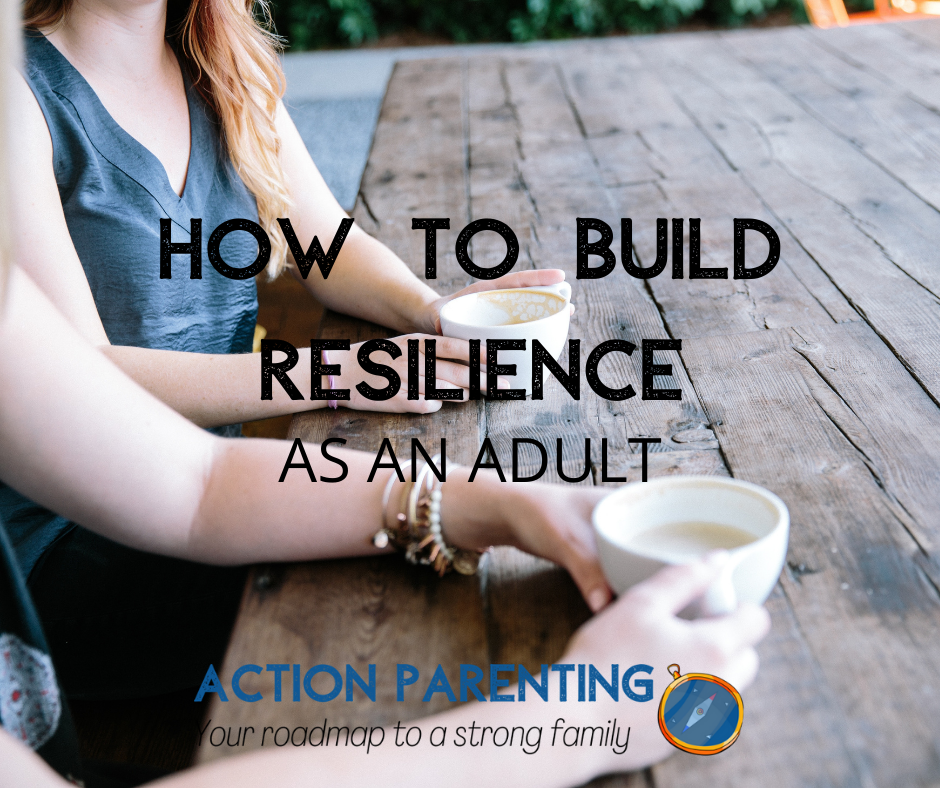Resilience is the ability to move through the hard thing and not get stuck. Life will always throw difficult curve balls. Resilience helps us recover from setbacks and adapt to challenging circumstances. Research tells us that some people seem to come by resilience naturally, but resilient behaviors can also be learned and improved. It is a skill that we can not only teach our children but one we can continue to grow in ourselves! Learn how to build resilience as an adult with these simple tips.

Keep Moving
When faced with a difficult situation many of us just freeze or wait for the struggle to pass. Instead of getting stuck, make small attainable goals. Develop realistic goals with simple actions steps you can take to move towards your goal. Having a sense of purpose during a crisis can help move you forward. Sometimes it’s as simple as asking yourself “what is my next right thing” and then just doing that next right thing.
Encourage Connection
Just like kids, resilience grows in adults through connection. Finding a space where you can share life’s difficulties and feel supported is important. Connecting with others who understand the struggles you face lets you know you are not alone. The caring and supportive people around you acts as a protective factor during times of crisis.
Flexibility
An essential part of resilience is the ability to be flexible and accepting of change. By learning and practicing flexibility you will be ready to adapt to changing and shifting situations. When life doesn’t go exactly as planned, take the opportunities to make changes, learn new things, and potentially head in a new direction.
Take Care of Yourself
Another important part of building resilience is taking care of yourself. When we are going through rough times it’s easy to try and ignore what our body needs in order to power through. Rather than working against your body, figure out a way to work with it. Get sleep, move your body, talk to a therapist, have a good cry, do whatever you and your body needs to have the energy to bounce back. This is also a great area to involve your community in. Work with your community (partner, family, friends) to help carve out time to take care of yourself. What can they do to support you?
What Resilience Isn’t
Being resilient doesn’t mean life won’t knock you down sometimes, that just isn’t realistic. Resilience isn’t a personality trait, instead it involves behaviors, habits, connections, and actions. Just like building a muscle, increasing your own resilience takes time, effort, and focus but as it grows it will serve you well in the end!

